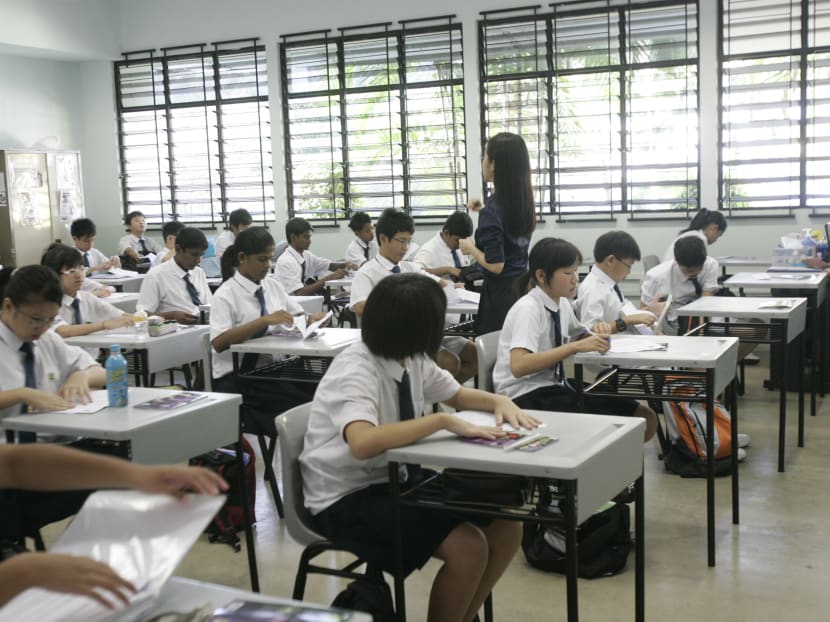Education system must evolve as needs change: Heng
AMSTERDAM — The Singapore education system must be transformed to ensure students have the relevant skills to keep up with changes in the economy, starting from giving children a strong foundation in literacy and numeracy to ensuring students have a good grounding in maths and technology skills as they move through the education system, said Education Minister Heng Swee Keat.
AMSTERDAM — The Singapore education system must be transformed to ensure students have the relevant skills to keep up with changes in the economy, starting from giving children a strong foundation in literacy and numeracy to ensuring students have a good grounding in maths and technology skills as they move through the education system, said Education Minister Heng Swee Keat.
This goes with helping students build skills in problem solving and applying knowledge and, when they enter the workforce, employers must play their part to foster learning at the workplace, he said.
Mr Heng was speaking to the media after a five-day study trip to Norway and the Netherlands, where he noted that the eurozone crisis had affected employability and that the availability of jobs in Singapore should not be taken for granted.
“While education must continue to develop a person, we also have a responsibility to ensure it allows young people to access jobs,” he said.
The need for “skills transformation”, he said, was the “biggest takeaway” from his visits to schools in the two countries. “This skills transformation will involve many stakeholders, starting from schools to give our children a strong foundation in literacy and numeracy, throughout our system to give them a good grounding in STEM (science, technology, engineering and mathematics), moving on to help them build skills in problem solving (and) in applying knowledge,” he said.
Citing practices in the Norwegian and Dutch education systems, Mr Heng said that without a “rigorous foundation” of numeracy and literacy, students cannot learn new skills and pick up new jobs later in life.
In Singapore’s schools, this foundation has been strengthened, such as through an emphasis on bilingualism even in the kindergartens and learning support programmes for languages and maths in primary and secondary schools. “Whether the current level of literacy is sufficient, we will continue to assess and do more,” he said.
This could mean enhancing literacy programmes at the Institutes of Technical Education (ITEs). “Because, otherwise, our young people, when they go to ITE, (they) don’t have a strong foundation (and) find it hard to learn new skills for the future if they don’t have the literacy skills,” he said.
Singapore’s current participation in the Organisation for Economic Coopera-tion and Development’s study on skill levels among adults would further help diagnose gaps for the Government to possibly move into, he added.
A strong foundation in basic STEM skills is also needed. Although not everyone is strong in these areas, Singapore needs a “significant percentage” of students to take on rigorous STEM subjects, said Mr Heng.
For example, at the University of Applied Sciences Amsterdam, fashion students use 3D modelling to design clothes. This illustrates the importance of strengthening students’ fundamentals in mathematics and IT, as technology continues to revolutionise many sectors of society, he said.
In reference to the ongoing Applied Study in Polytechnics and ITE Review (ASPIRE) to better integrate theory and practice at polytechnics and ITEs, Mr Heng said there was a need for applied learning at all levels of education. This will help students unlock the potential in their abilities and use them to solve real-life problems.
Said Mr Heng: “What is striking (in the Netherlands is that from) … pre-schools right up to research-intensive universities, everyone is grappling with this need to bridge theory and practice, to break boundaries between academic institutions and the real world.”
He acknowledged the need to raise awareness of skills in Singapore and go beyond the narrow definition of vocational work. “Employers, too, need to value those skills more than just credentials … (to) play an active role in developing their people and training,” he added.







